Can TENS Unit Cause Heart Attack
Unraveling the World of Can TENS Unit Cause Heart Attack?
Transcutaneous Electrical Nerve Stimulation (TENS) units are specialized devices widely used in the medical and physical therapy fields. These handy gadgets function by sending low-voltage electrical currents through the skin to stimulate nerve endings.
The primary goal? – To alleviate pain.
TENS units are often used for knee pain as well as the management, including chronic pain, acute pain, and postoperative pain. Additionally, they may aid in muscle healing by promoting blood circulation and stimulating muscle contractions.
Despite their wide usage and perceived benefits, a recent concern has stirred the medical community and users alike – Can a TENS unit cause a heart attack? It’s a question that has emerged due to a few reported incidents and anecdotal claims. Heart attacks are serious and life-threatening medical emergencies, and any potential trigger must be meticulously scrutinized.
This article aims to explore this debated concern in depth. We will delve into the functions of TENS units, their association with heart attacks, and the broader scope of potential risks linked to these devices. Whether you’re a medical professional, a current or prospective user of TENS units, or simply curious about this device, this discussion offers critical insights.
Before we dive deeper, it’s essential to touch briefly on the risks and precautions associated with TENS units. As with any medical device, certain side effects and potential risks may occur. Common side effects include skin irritation, muscle twitching, headaches, and dizziness. There are also guidelines and contraindications about who should and shouldn’t use TENS units, and how to use them safely and effectively.
By the end of this article, you will have a comprehensive understanding of the debate surrounding TENS units and heart attacks, as well as the safety measures necessary when using these devices. So, let’s begin our exploration into the world of TENS units and their potential impact on heart health.
II. Understanding the TENS Unit: Working, Benefits, and Safety Regulations
At its core, a Transcutaneous Electrical Nerve Stimulation (TENS) unit is a small, battery-operated device that delivers low-voltage electrical currents through the skin. This is achieved through electrode pads that are strategically placed on the body, typically around an area of pain.
The purpose of this electrical current? It’s designed to stimulate the nerve endings beneath the skin’s surface. This stimulation is believed to block or reduce the perception of pain by disrupting the pain signals before they reach the brain. Furthermore, it’s also suggested that this stimulation encourages the production of endorphins, the body’s natural painkillers.
One of the primary uses of TENS units is pain relief. This can range from chronic pain conditions like arthritis or fibromyalgia to acute scenarios such as postoperative pain or labor pain. Apart from pain management, these devices are also known to promote muscle healing and stimulate muscle contractions, making them beneficial for various physical therapy regimens.
Despite the plethora of benefits, it’s important to understand that TENS units fall under Class II medical devices. This classification means that while they are deemed safe and effective for pain treatment, they need to be used in a manner consistent with the manufacturer’s recommendations. Misuse of TENS units can potentially lead to health complications, which underlines the importance of using them correctly and under the guidance of a healthcare professional.
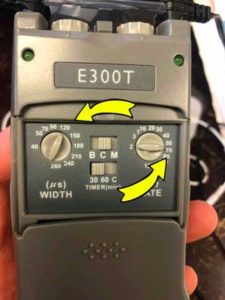
TENS after knee replacement
Additionally, TENS units come under the regulatory purview of health authorities, such as the U.S. Food and Drug Administration (FDA). These devices must meet certain safety, efficacy, and quality parameters to be market-approved. Despite this, the safety of TENS units largely depends on their proper usage, the individual’s health status, and their adherence to contraindications provided by the manufacturer or healthcare provider.
In conclusion, TENS units, while extremely beneficial for managing various types of pain and aiding in physical therapy, are medical devices that must be used responsibly and judiciously. The next section will discuss the debated concern: Can a TENS unit cause a heart attack?
III. The Heart Attack Debate: Correlation or Causation?
While TENS units have become an increasingly popular tool for managing various pain conditions, concerns have been raised about their potential link to heart attacks. But are these worries justified, or are they mere correlations mistaken for causations?
Certain cases have been reported where individuals have experienced heart attacks after using TENS units. These instances have understandably fueled debates about whether these devices can indeed trigger such a severe cardiac event. However, it is crucial to differentiate between correlation and causation in these circumstances. Correlation means that two events happen simultaneously or in succession, but one does not necessarily cause the other. Causation, on the other hand, means one event directly results in the other.
In the case of TENS units, the scientific evidence indicating a direct causative link to heart attacks is minimal. That said, it is equally important to note that people with pre-existing heart conditions or those using the device improperly or against medical advice may be at an increased risk of cardiac events. This doesn’t necessarily mean the TENS unit causes heart attacks, but it might contribute to the risk, especially in susceptible individuals.
Expert opinions from medical professionals emphasize this point. The consensus is that while TENS units may potentially cause skin irritation and, in rare cases, muscle twitching, headaches, or dizziness, they are unlikely to directly cause a heart attack. Medical practitioners also stress that the units should not be used in certain situations, like when a person has a pacemaker or other implanted metallic or electronic devices, as this can indeed increase heart-related risks.
Ultimately, while the debate about TENS units and heart attacks continues, it is vital to understand that these units are considered safe when used as directed. Risks can emerge when the device is used improperly or by individuals with specific health conditions, which is why it’s crucial to consult with a healthcare professional before beginning a TENS treatment regimen.
IV. Potential Risks Associated with TENS Units
While TENS units are generally safe and effective when used as directed, like any medical device, they do come with potential risks and side effects. It’s important to be aware of these possible issues to make an informed decision about using a TENS unit.
Common side effects of TENS therapy may include skin irritation or burns at the site of the electrode placement. This is often due to sensitivity to the adhesive used on the pads or from the electrical current itself. Another potential side effect is muscle twitching, which can occur if the electrical stimulation is too strong. It’s important to adjust the settings of the TENS unit according to your comfort level to avoid this.
Headaches and dizziness can also occur in some users. These side effects may be related to the electrical stimulation affecting nerve pathways, leading to these symptoms. Nausea is less common but can occur, particularly if the TENS unit is used on areas close to the stomach. In rare cases, the TENS unit may cause an unpleasant tingling sensation or even pain, which should prompt immediate discontinuation of the device.
While the short-term side effects of TENS units are fairly well-documented, the long-term effects are less known. This is partly because TENS therapy is typically used for short-term pain relief, and research on prolonged use is limited. However, there are suggestions that long-term use might potentially lead to nerve damage, although this is still a topic of ongoing research.
One must remember that individual experiences with TENS units can vary widely. What one person tolerates well, another may find uncomfortable. This is why it’s important to follow the specific usage instructions provided with your TENS unit and consult with a healthcare professional if you encounter any problems or have any concerns.
V. Safety Guidelines and Contraindications for TENS Units
TENS units, while beneficial for many, should not be used by everyone. Certain medical conditions can make TENS therapy potentially harmful. For instance, individuals with cardiac pacemakers, defibrillators, or other implanted metallic or electronic devices should avoid using a TENS unit, as it can interfere with these devices’ function. People with epilepsy, cancerous lesions, recent traumas or fractures, recent surgical procedures, and certain circulatory issues should also steer clear of this form of therapy.
There are also specific areas and situations where TENS units should not be applied. The device should not be used on atrophied muscles, muscles with spasms, or muscles associated with an impaired joint or limb. It’s also important not to place the adhesive electrodes on or near the heart, across the chest, or on the neck, as this can lead to rhythm disturbances or other complications. Electrodes should not be placed over open wounds, swollen, infected or inflamed areas, or skin eruptions.
Furthermore, avoid using a TENS unit during certain activities, such as bathing, showering, or driving, due to the risk of shock or distraction. Extended use is also discouraged as muscles in the treated region could become exhausted and sore.
For the safe use of TENS units, always follow the manufacturer’s instructions and consult with a healthcare professional if you’re unsure about anything. If you’re pregnant, have an acute disease, a malignant tumor, infectious disease, heart disease, high fever, abnormal blood pressure, skin sensory disorders, hernias, or if you’re an expectant mother, it’s especially crucial to consult with your doctor before using a TENS unit.
If you experience any discomfort, such as nausea or dizziness, or if the unit is not functioning properly, stop the treatment immediately and consult a healthcare professional. Remember, each person should have their own set of electrodes to prevent cross-contamination and potential skin reactions.
VI. Precautions Before Using a TENS Unit
Before starting any form of therapy or medical treatment, including the use of a TENS unit, it’s important to consult with a healthcare professional. Doctors can assess your personal health status, existing conditions, and potential risks associated with TENS therapy. They can also provide guidance on how to use the unit safely and effectively based on your unique situation.
There are certain conditions that warrant extra precaution when considering the use of a TENS unit. For example, if you have a cardiac pacemaker, implanted defibrillator, or other metallic or electronic devices in your body, using a TENS unit might interfere with their functionality. Other conditions, such as epilepsy, abdominal or inguinal hernias, and severe circulatory issues, should also trigger a conversation with a medical professional before starting TENS therapy.
Special situations also necessitate additional consideration. If you’re pregnant, the safety of electrical stimulation hasn’t been fully established, so it’s crucial to discuss potential risks with your healthcare provider. The same goes for people who have recently undergone surgical procedures, as TENS treatment might affect the healing process or cause complications. Moreover, if you have an acute disease, malignant tumor, infectious disease, heart disease, high fever, or abnormal blood pressure, it’s essential to seek medical advice before using a TENS unit.
Ultimately, using a TENS unit should be a decision made in conjunction with a healthcare provider. While the unit can offer pain relief and muscle stimulation, it’s not suitable for everyone. Understanding your personal health condition and potential risks is a critical step in ensuring the safe and effective use of this device.
VII. Precautions Before Using a TENS Unit
The decision to use a TENS unit shouldn’t be made in haste. It’s crucial to involve your healthcare provider in this decision-making process, not only to ensure the device is suitable for your specific health situation but also to ensure its usage won’t adversely interfere with any existing medical conditions or treatments.
There are specific conditions that require extra caution when contemplating the use of a TENS unit. People with cardiac pacemakers, defibrillators, or other implanted metallic or electronic devices should avoid TENS units as the electrical impulses could potentially disrupt the devices’ functionality. Similarly, those with epilepsy, certain types of lesions, acute trauma or fracture, recent surgical procedures, abdominal or inguinal hernia, critical ischemia of lower limbs, and blood flow deficiencies or venous thrombosis should refrain from using TENS units. If you have any of these conditions, it’s vital to have a detailed discussion with your doctor about possible alternatives for pain management.
Special circumstances also call for added precautions. For instance, the safety of TENS usage during pregnancy has not been fully established. If you’re pregnant or planning to conceive, consulting with your doctor is critical. Also, if you’ve recently undergone any surgical procedure, it’s important to ensure that the use of a TENS unit won’t affect the healing process or cause unwanted complications. And, for individuals with acute diseases, malignant tumors, infectious diseases, heart disease, high fever, abnormal blood pressure, skin sensory disorders or skin problems, or hernia, medical consultation prior to the use of a TENS unit is strongly recommended.
Overall, the safe and effective use of a TENS unit involves much more than simply turning on the device. Being mindful of your unique health situation, taking into account any existing medical conditions, and adhering to recommended safety guidelines will go a long way in ensuring you maximize the benefits and minimize the risks of using a TENS unit.
VIII. Conclusion – Can TENS Unit Cause Heart Attack
TENS units represent a unique method of pain management, one that has proven beneficial for many individuals. However, it’s crucial to remember that like all medical interventions, they carry potential risks and require careful consideration before use.
We’ve explored some common concerns around TENS units, including skin irritation, muscle twitching, headaches, and dizziness. The primary focus of this discussion revolved around the hotly debated question: Can a TENS unit cause a heart attack? While there’s no definitive evidence to suggest that TENS units directly cause heart attacks, the importance of using these devices responsibly and under the guidance of a healthcare professional cannot be overstated.
Specific contraindications and precautions have been highlighted, demonstrating that TENS units are not suitable for everyone. People with certain medical conditions, those with implanted electronic devices, and those in specific circumstances like pregnancy or recent surgery need to be particularly cautious. In all these cases, a healthcare provider’s advice is indispensable.
Finally, the debate around TENS units and heart attacks underscores the importance of ongoing research in this field. As our understanding deepens, guidelines and recommendations will continue to evolve. Meanwhile, it’s up to individual users and their healthcare providers to ensure that TENS units are used safely and appropriately, with a keen awareness of both their potential benefits and risks.
Meet the Team at Monroe, OH:
Anthony Maritato, PT
 Anthony Tony Maritato, PT |
|
Anthony Maritato, PT goes by Tony in the clinic. He was a Penn State graduate (but don’t hold that against him) who became a licensed physical therapist in 2006 here in Ohio. Tony started Total Therapy Solutions in 2002 down in Sarasota, FL with Middletown, OH native Kathleen Long, Maritato. |
Jeremy Clay, PTA
 Jeremy Clay PTA Total Therapy Solutions Middletown Ohio |
|
Jeremy Clay, PTA is a licensed physical therapist assistant and major Pittsburg Steelers Fan. If Jeremy isn’t sporting his trademark black, white, and gold then you know the Steelers lost last night’s game and you will be doing lots of extra reps in the clinic today! |
Jenna LeeAnn Lewis, PTA
 Jenna LeeAnn Lewis PTA Monroe Ohio Total Therapy Solutions |
|
Jenna LeeAnn Lewis, PTA is the glue that holds this team together. Edgewood High School graduate and sports enthusiast, to say that Jenna lights up the clinic with her infectious smile and kind heart is an understatement. Jenna has been a licensed physical therapist assistant since 2017 and continues to help her patients eliminate pain while laughing their way through each therapy session. |
More Reading…
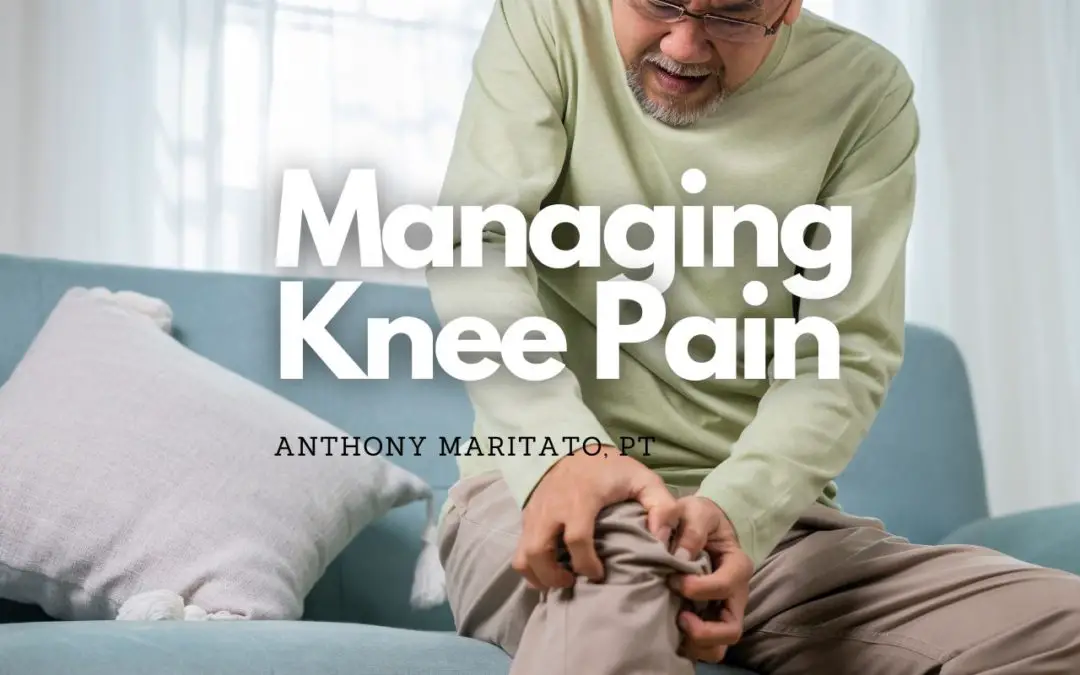
Managing Pain After Total Knee Replacement
Introduction to Managing Pain After a Knee Replacement Undergoing a total knee replacement is a significant medical procedure that can dramatically improve your quality of life. However, the journey to full recovery involves navigating through various challenges, one...

Total Knee Replacement Pain at Night
What to Expect Explore our comprehensive guide on managing 'Total Knee Replacement Pain at Night.' Learn about the causes of night pain, effective pain management strategies, best sleeping positions, and more. This article provides practical advice to help individuals...
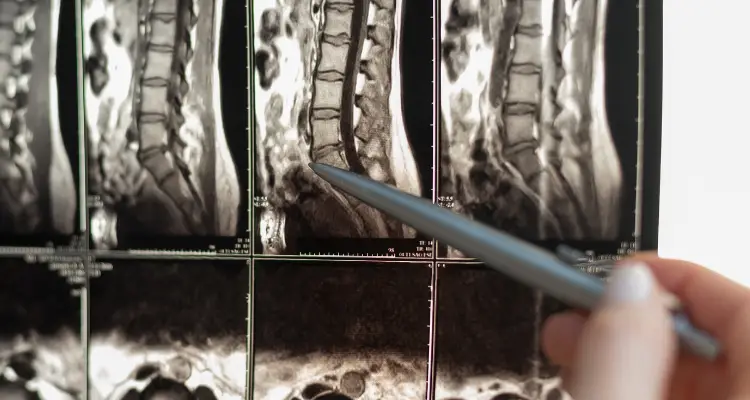
Overview of Spinal Stenosis
Table of Contents What is spinal stenosis What are the symptoms of spinal stenosis How is spinal stenosis diagnosed What are the different types of treatment for spinal stenosis Where to find more information 1. What is spinal stenosis Spinal stenosis is a condition...

Spinal Stenosis Exercises to Avoid: During Knee Replacement Recovery
Spinal stenosis is relatively common among adults having a total knee replacement surgery. While spinal stenosis doesn't always impact total knee replacement recovery, when it does, it can be frustrating. Before I specialized in treating patients after a total knee...

Ride a Peloton After Knee Replacement Surgery
Table of Contents When can I return to riding my Peloton bike at home after a total knee replacement? Is a Peloton bike good physical therapy after a total knee replacement surgery? Will riding my Peloton too much wear out my new knee? How often should I ride my...
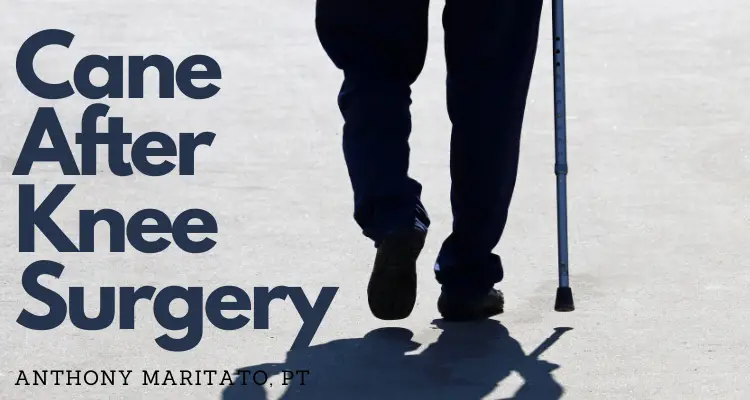
How to Use a Cane After Knee Surgery
Table of Contents Understanding the Purpose of Using a Cane after Knee Surgery How to Properly Use a Cane after Knee Surgery Common Mistakes to Avoid When Using a Cane Transitioning from a Walker to a Cane: When and How? Understanding the Purpose of Using a Cane after...
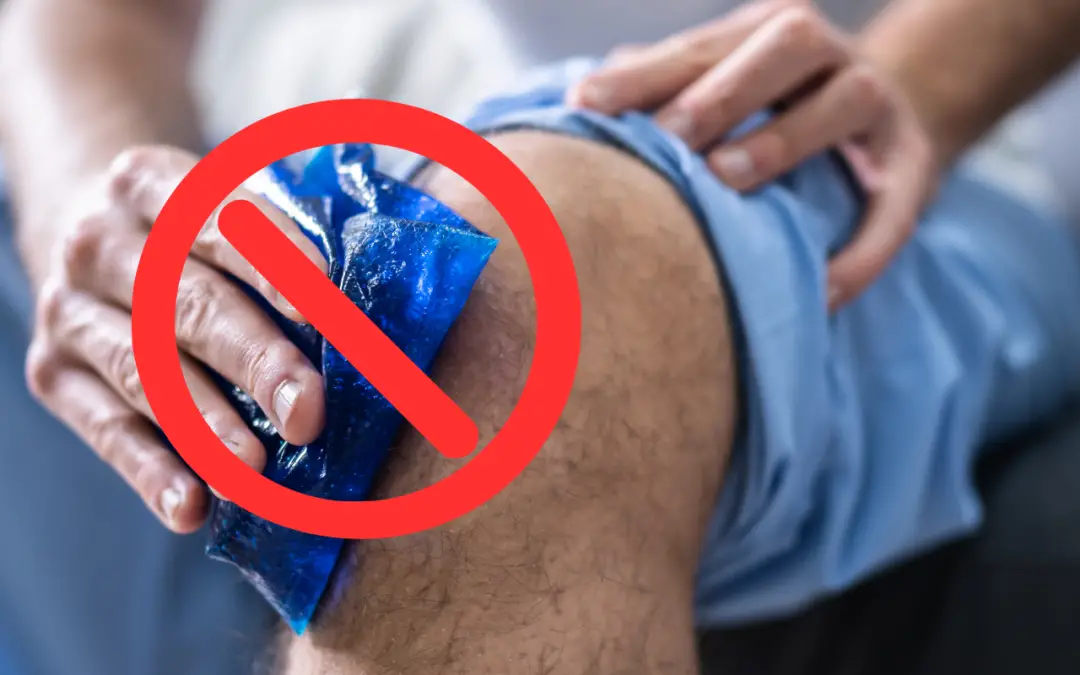
Ice Machine for Knee Surgery
Table of Contents Benefits of Using an Ice Machine After Knee Surgery How an Ice Machine Works Top Ice Machines for Knee Surgery Recovery How to Use an Ice Machine After Knee Surgery Where to Buy an Ice Machine and What to Consider Benefits of Using an Ice Machine...

Walking Your Dog After Knee Replacement Surgery: A Timeline for Recovery
Table of Contents Introduction Walking Your Dog After Knee Replacement Safety Considerations and Precautions Conclusion Introduction Hello, fellow dog lovers and knee replacement warriors! I'm Anthony Maritato, a licensed physical therapist specializing in post-total...

Top 5 Mistakes After Knee Replacement
In this article I will share my experience as a physical therapist and personal trainer of more than 22 years treating patients after total knee replacement surgery. I have seen patients who made every mistake possible and still had a great outcome following this...

Disadvantages of Knee Replacement Surgery
Table of Contents Introduction Pain Time Lost Cost Stress Post Surgical Risk or Complications Conclusion Introduction When considering treatment options for severe knee arthritis, one commonly considered intervention is knee replacement surgery. Despite its high...

